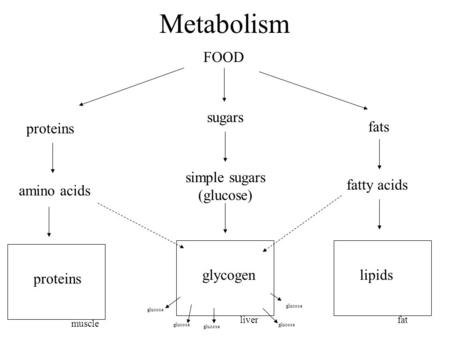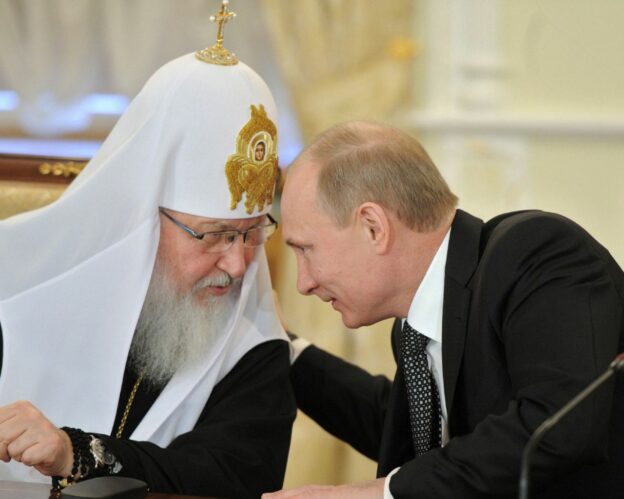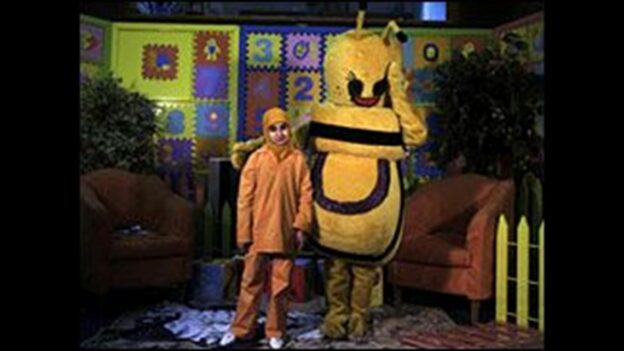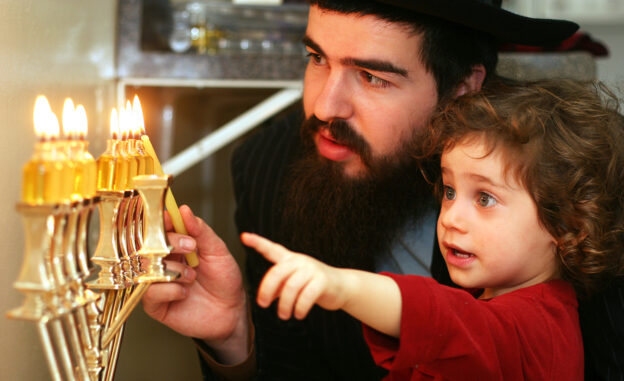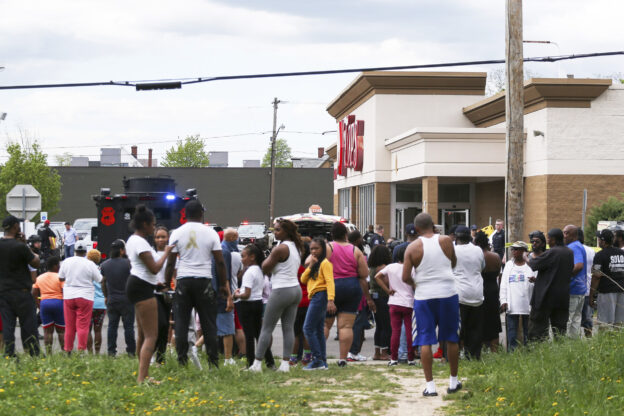The essay below appeared in Haaretz
Haaretz Opinion
Racist Antisemites, but pro-Israel: The Choice Facing U.S. Orthodox Jews at the Polls
Should American Jews who believe sexual identity is not a mere social construct, that marriage is between man and woman, and abortion should not be a mere “choice,” support politicians who inspire racist and antisemitic murderers?
Avi Shafran
Jun. 7, 2022 12:45 PM
The gunman who killed 10 people in a Buffalo, New York, neighborhood supermarket last month clearly targeted Black people. Not only was the market in a Black neighborhood, but the killer is reported to have shared his racist beliefs in a long-winded manifesto seething with hatred of “non-white” people and immigrants who, in his fevered mind, threaten to supplant ”native-born” Americans.
The document deems Black Americans, along with immigrants, as “replacers” – people who “invade our lands, live on our soil, live on government support and attack and replace our people.”
But the 180-page rant didn’t exactly ignore another minority.
“The Jews are the biggest problem the Western world has ever had,” the manifesto reads. “They must be called out and killed, if they are lucky they will be exiled. We can not show any sympathy towards them again.”
As to why he attacked a target in Buffalo and not Brooklyn, he reassured his readers that “the Jews…can be dealt with in time.”
The toxic brew of hatred, fear and unreason about how “real” Americans (or Europeans) are threatened with being overwhelmed by masses of dark invaders, popularly goes by the name “The Great Replacement.”
And other proponents of the ideology have also expressed themselves violently.
In the ADL’s tally, of the 450 murders committed by political extremists over the past decade in the U.S., Islamist extremists were responsible for about 20 percent, and left-wing extremists for 4 percent. Fully 75 percent were perpetrated by right-wing extremists, many of them explicitly tied to white supremacist movements.
Lest we forget, the Pittsburgh killer of 11 people at a Jewish congregation in 2018 blamed Jews as the “hidden hand” behind a plot to dilute the nation’s white Christian identity.
The killer of Black churchgoers in Charleston in 2015 called on whites to fight both Blacks and Jews.
The marchers in Charlottesville at the 2017 “Unite the Right” rally (in)famously chanted “Jews will not replace us!”
White supremacists killed more people than any other type of radical last year.
The “Great Replacement” idea has been embraced and promoted by an assortment of political and media figures. While some find it unreasonable to imagine that the white power ideology’s mainstreaming in the (more) genteel public sphere plays any role in the violence committed under its banner, imagining otherwise is willful blindness.
To be sure, the pols and pundits generally focus on illegal immigration, something that every sovereign nation, of course, has a right and responsibility to control.
Here in the U.S., the pushers of “replacement theory” declare that their objection is to undocumented immigrants voting for Democratic candidates.
But non-citizens cannot vote in federal or state elections, or in any but a handful of local ones. And even were amnesty to be offered to many, or even all, undocumented immigrants, their path to citizenship would take some eight years, plenty of time to be courted by the Republican party (which, as it happens, increased its share of Latino voters in the 2020 election).
And so, the illegal immigration issue is a red herring (or, perhaps, a white one).
What’s more, much of the replacement rhetoric devolves from electoral concerns, justified or not, into less rarefied realms. The voices, though, belong to some of America’s most powerful institutions.
Steve King, while he was still serving as a Republican member of Congress for Iowa, tweeted that “We can’t restore our civilization with somebody else’s babies.” He doubled down with the same vile contention on national TV.
Josh Mandel, when he was standing for election as the GOP candidate for a Senate seat for Ohio, bemoaned how immigration is “changing the face of America, figuratively and literally… our culture… our demographics…” adding “our electorate” only at the end. He endorsed Mike Flynn’s rallying cry that the United States should be “one nation under God and one religion under God.”
And former House Speaker Newt Gingrich declared that leftists were attempting to “drown” out “classic Americans.”
Then there is Tucker Carlson, the Fox News personality who famously said that immigration makes the U.S. “poorer, dirtier and more divided.” He makes sure to verbally renounce political violence, of course, but has long ranted in angry monologues against what he calls the demographic threat posed by immigration. Do his words resonate with people like the Buffalo murderer?
“How, precisely, is diversity our strength?” fumed Mr. Carlson in a much-shared 2018 segment.
“Why is diversity said to be our greatest strength?” wrote the Buffalo shooter.
Many of us American Jews see the anti-Israel screeds of the progressive “Squad” in Congress as incendiary, as encouraging violence against Jews.
We’re not wrong about that. But it’s time we Jews realized, too, Orthodox and non-Orthodox, conservative and liberal alike, that Replacement Theory dressed up as judicious immigration concerns is just as dangerous, and, in light of the ADL stats, arguably more so.
At her first public appearance, at The United States Holocaust Memorial Museum in Washington, the newly minted U.S. Special Envoy for Monitoring and Combating Anti-Semitism, Professor Deborah Lipstadt, decried the canard “that Jews were behind an attempt to destroy white America,” which she said has “been adopted and adapted by racially or ethnically motivated violent extremists in Europe and beyond.”
There was a time – it seems so long ago now – when Jews in the U.S. were largely united in supporting Israel and upholding democratic ideals; and recognized the importance of immigrants, like ourselves, to the American melting pot. And it was pretty clear which candidates deserved our votes.
It was a time when Orthodox Jews in particular, but other Jews as well, spoke in unison about the importance of traditional family values and the role of morality in forging social policy. And knew which candidates could be counted on to responsibly further our goals. It was a time when we felt that America’s fundamental democratic institutions, including the nation’s electoral system, deserved to be respected by all citizens, and that minorities and immigrants deserved protection and respect from both the populace and the electorate.
Today, though, as a celebrated bard has maintained, things have changed. And the changes leave much, if not most, of American Jewry conflicted. Or, at least they should.
Should Israel supporters cast votes for candidates who stand up unapologetically for Israel’s security, even if those aspirants to public office promote delusions like “Replacement Theory”? Should those of us who believe that sexual identity is not a mere social construct, that marriage is the union of a man and woman (defined biologically) and that abortion should not be a mere “choice,” support politicians who feel the same but, wittingly or not, help inspire racist and antisemitic murderers?
It’s a Sophie’s choice, and I don’t profess to know how best to make it.
But it’s a reality that must be faced. And lives – Black, Asian, Hispanic and Jewish alike, are more than theoretically at stake.
Rabbi Avi Shafran writes widely in Jewish and general media. Twitter: @RabbiAviShafran
